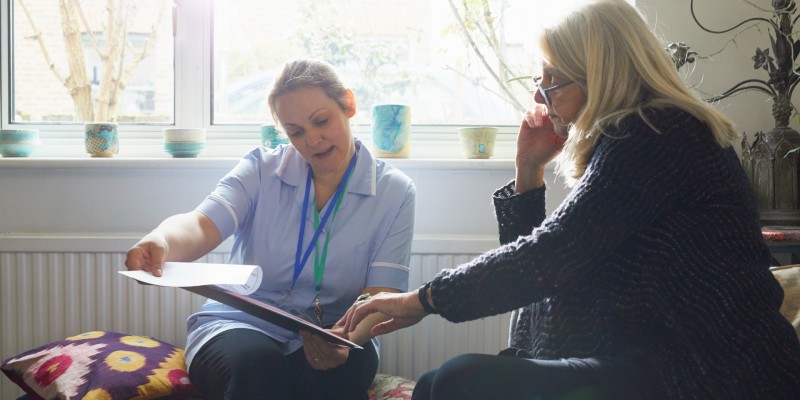News
RCN Scotland calls for the Scottish government to act now on social care
The Scottish government must take urgent action now to tackle the major challenges facing the social care sector, rather than wait until the creation of a National Care Service (NCS).

Connect with us:
RCN Scotland made this call this week in a letter to the Health, Social Care and Sport Committee.
In the letter, RCN Scotland says: “Given the lack of clarity about the content of the [NCS] Bill and whether the current timetable can be met, in addition to our ongoing concerns about whether the Bill will achieve its objectives, we believe the Scottish Government must act now to tackle the challenges facing a sector that is in crisis.”
The letter follows the committee’s decision to write to Maree Todd MSP, Minister for Social Care, Mental Wellbeing and Sport. The committee expressed concern that it does not currently have sufficient information about aspects of the Bill to continue Stage 1 scrutiny. The committee’s letter also sets out 14 specific questions it requires answers to on the Bill.
RCN Scotland’s letter says that at the heart of the challenges facing the sector is a workforce crisis. The latest workforce statistics show 61% of care services that employ nurses report vacancies and the vacancy rate for these services is 17%. SSSC data shows a 38% (2,020) reduction in the number of registered nurses employed in care homes between 2012-2022. This suggests that care home providers are moving away from directly employing registered nurses and increasingly relying on community nursing. However, the vacancy rate in community nursing teams is 11%, which is unsustainable.
Also in the letter, RCN Scotland reiterated the areas that it would like to see addressed in the NCS Bill, if it is to progress to Stage 2. These include:
- Robust workforce planning requirements to ensure NCS services have the right staff, with the right skills, to deliver high quality, safe services
- Fair work embedded within the Bill
- Senior nurse leadership on the national and local care boards to ensure nursing expertise in the strategic leadership of the NCS
- Clear professional and clinical governance structures for staff, that provide unambiguous routes for escalation and decision making.
Colin Poolman, Director, RCN Scotland said:
“The Scottish government seems determined to persist with a Bill that many across health and social care have said is not fit for purpose. Meanwhile, the sector remains in crisis even before we head into the winter.
“The recently published winter preparedness plan did not provide much relief or hope for our hard-pressed nursing staff working in health and care services. Last winter was recognised as the worst on record. So-called ‘corridor care’ and the use of additional capacity beds has continued over the summer in acute settings. The lack of capacity in the community health and social care sectors was a key factor last winter. The Scottish government has not come close to addressing these challenges.
“We’re seeing increasing demand for complex clinical care in community health and care home settings. Registered nurses play a key role in meeting this need, and services must have the right numbers of nursing staff, with the right skills, in the right place. Funding for Scotland’s care home sector is needed to pay for more registered nurses to be employed directly in the sector.
“The challenges are so acute and the pressure on services so great that we can’t wait around for the Scottish government to get its act together to come up with a coherent Bill for the proposed National Care Service.”











